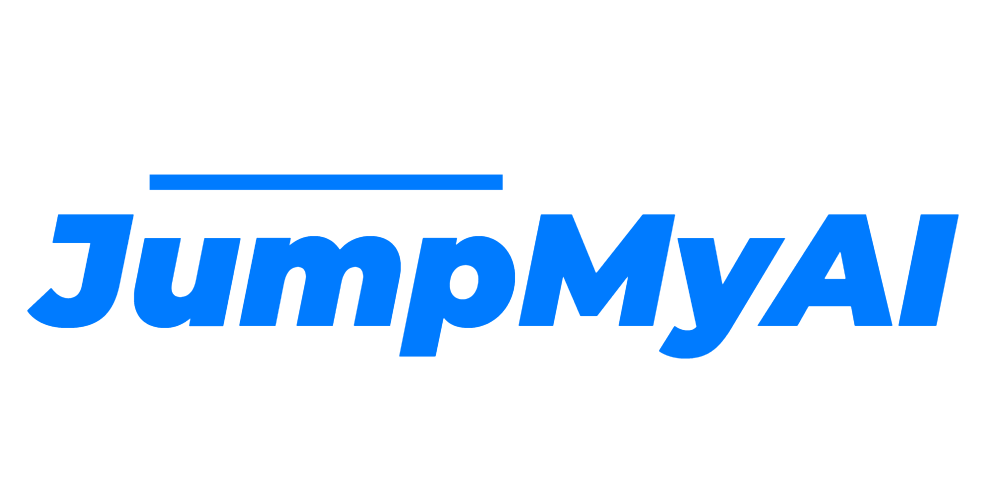How To Start an AI Automation Agency – Ultimate 10-Page Guide
1. To Start or Not To?
Starting an AI Automation Agency requires an understanding of the current AI trends, automation tools, and market understanding for the niche you want to help start an agency in. In general, you have to train an AI with the business’s data and use automation tools to automate pain points in the business and reduce friction, thus maximizing profits.
The AI will take care of automating several aspects of the business provided the automation tools are available at it’s disposal and the flow has been correctly set up for a particular business. This requires an understanding of several topics before you jumpstart into starting an ai automation agency. Think of the AI part here as a human who can orchestrate several actions within the business since he has access to business information and automation tools.
Quick Navigation: How To Start An AI Automation Agency
Quick Definition: An AI automation agency is an organization that specializes in leveraging AI technologies to streamline processes, improve decision-making, and enhance overall business performance. These agencies, armed with cutting-edge AI tools and expertise, help businesses automate repetitive tasks, analyze data, and generate valuable insights, ultimately driving growth and success.
1.1 Importance of AI Automation in Business
In today’s rapidly evolving digital landscape, staying ahead of the competition is paramount. This is where AI automation steps in as a game-changer. By automating routine and time-consuming tasks, businesses can focus on strategic initiatives, innovation, and building stronger customer relationships. Here are a few key reasons why embracing AI automation is critical for businesses:
- Increased Efficiency: AI-powered automation eliminates labor-intensive manual processes, leading to faster and more accurate results. This allows businesses to achieve higher levels of efficiency and productivity.
- Data-Driven Insights: With AI algorithms analyzing vast amounts of data, businesses gain valuable insights into customer preferences, market trends, and predictive analytics. These insights enable informed decision-making and targeted strategies.
- Improved Customer Experience: AI automation enables businesses to personalize customer interactions, offering tailored recommendations and experiences. This level of personalization enhances customer satisfaction and loyalty.
- Cost Savings: By automating repetitive tasks, businesses can reduce operational costs associated with manual labor. This cost-saving aspect makes AI automation an attractive proposition for businesses of all sizes.
2. Getting Started with an AI Automation Agency
2.1 Understanding the Market
Before diving into the world of AI automation, it is crucial to have a clear understanding of the market landscape. Market research plays a vital role in identifying the current trends and demands in the industry. Here are some key points to consider:
- Identify the industries that are most likely to benefit from AI automation. Look for sectors that heavily rely on repetitive tasks and can benefit from streamlining their processes.
- Analyze the competition. Understand what other AI automation agencies are offering and how you can differentiate yourself.
- Stay updated with the latest advancements in AI technologies. This will give you an edge when it comes to providing cutting-edge solutions to your clients.
To know what services can be offered by an ai automation agency, refer: 11+ AI Automation Agency Services in 2023 To Offer
2.2 Identifying Target Customers
To establish a successful AI automation agency, it is essential to identify your target customers. This will help you tailor your services and marketing strategies to meet their specific needs. Consider the following steps:
- Define your ideal customer profile. Identify the industries or businesses that would benefit the most from AI automation.
- Research your target customers’ pain points and challenges. Understand how AI automation can solve their problems and improve their operations.
- Develop buyer personas to gain a deeper understanding of your target customers. This will help you create more targeted and effective marketing messages.
2.3 Defining Your Unique Selling Proposition
In a competitive market, it is crucial to have a strong and unique selling proposition (USP) that sets you apart from your competitors. Here are some steps to define your USP:
- Identify your agency’s core strengths and expertise in AI automation. This could be a specific industry focus, a unique approach, or a specialized skill set.
- Understand the pain points of your target customers and align your USP with their needs. Clearly communicate how your agency can provide solutions to their challenges.
- Highlight your success stories and case studies to demonstrate your track record of delivering results. Social proof is a powerful tool in attracting and convincing potential clients.
Remember, your USP should resonate with your target customers and differentiate you from the competition. It should be the foundation of your branding and marketing efforts.
“Starting an AI automation agency requires a deep understanding of the market, a clear definition of your target customers, and a unique selling proposition that sets you apart.”
As you embark on this journey, keep in mind that the AI automation landscape is constantly evolving. Continuously update your knowledge, learn from the experts, and adapt your strategies accordingly. With the right approach and a passion for innovation, you can build a successful AI automation agency that transforms businesses and helps them thrive in the digital age.
3. Building Your Expertise
In order to establish a successful AI automation agency, it is crucial to build a strong foundation of expertise in the field of artificial intelligence. This will not only enhance your credibility as an agency but also enable you to provide top-notch services to your clients. Here are some key steps to building your expertise in AI:
3.1 Developing AI Skills and Knowledge
- Familiarize yourself with the various concepts and technologies in the field of AI, such as machine learning, deep learning, and natural language processing.
- Stay updated with the latest research papers, industry trends, and advancements in AI technology.
- Gain hands-on experience by working on personal projects and challenges to further sharpen your skills.
- Participate in online courses, workshops, and training programs to expand your knowledge base and stay ahead of the curve.
3.2 Collaborating with AI Experts and Researchers
- Networking with professionals already working in the AI field can provide valuable insights and guidance.
- Seek opportunities to collaborate with AI researchers and academic institutions to leverage their expertise and access cutting-edge research.”Collaboration with AI experts and researchers not only enriches your knowledge but also opens doors to potential partnerships and collaborations.” – Think with Google
3.3 Keeping Up with Industry Trends and Best Practices
- Stay informed about the latest industry trends, best practices, and regulatory developments in the AI domain.
- Engage with industry communities, forums, and discussion groups to exchange ideas, learn from peers, and gain insights into real-world challenges and solutions.
- Regularly attend AI conferences, summits, and webinars to stay updated on the latest advancements and connect with industry leaders.”Building expertise in AI requires continuous learning and adaptation to keep up with the rapidly evolving landscape.” – How to Start with AI as an Agency in 2022
By investing time and effort into building your expertise, you can position yourself as a trusted AI automation agency capable of delivering innovative and effective solutions to your clients.
Expert Tip
“One effective way to demonstrate your expertise is by creating thought leadership content. Publish articles, blogs, or videos that showcase your knowledge and insights in the AI domain. This can help establish your agency as a go-to resource for AI-related information and attract potential clients.”
Collection: Steps to Building Your Expertise in AI
- Develop AI skills and knowledge.
- Collaborate with AI experts and researchers.
- Keep up with industry trends and best practices.
By following these steps, you can cultivate a strong foundation of expertise, paving the way for your AI automation agency’s success in the dynamic and rapidly evolving world of artificial intelligence.
4. Creating a Strong Business Strategy
Creating a strong business strategy is crucial for the success of your AI automation agency. It lays the foundation for your agency’s growth and profitability. Here are some key steps to help you craft a robust business strategy:
4.1 Setting Goals and Objectives
Setting clear and realistic goals and objectives is the first step in building a strong business strategy. It provides a direction and a roadmap for your agency’s success. Consider the following points when setting your goals:
- Identify your long-term vision for the agency and break it down into short-term and medium-term goals.
- Ensure that your goals are specific, measurable, attainable, relevant, and time-bound (SMART goals) for better clarity and focus.
- Align your goals with the needs and expectations of your target customers, market trends, and industry demands.
Remember, setting goals is not enough. Regularly monitor your progress, track key metrics, and make necessary adjustments to keep your agency on track.
4.2 Crafting a Business Plan
Crafting a comprehensive business plan is essential for the success of your AI automation agency. It serves as a roadmap that outlines your agency’s mission, vision, target market, competitive analysis, pricing strategy, marketing plan, and financial projections. Here’s a breakdown of the key components of a business plan:
- Executive Summary: Provide an overview of your agency’s mission, vision, and goals.
- Company Description: Explain your agency’s background, legal structure, and services offered.
- Market Analysis: Conduct thorough research on the AI automation market, target audience, and competition. Identify market trends, potential opportunities, and challenges.
- Organization and Management: Describe the organizational structure of your agency, including key personnel and their roles.
- Services Offered: Clearly define the services your agency will provide and how they will address the needs of your target customers.
- Marketing and Sales Strategy: Outline your marketing and sales tactics, including branding, lead generation, customer acquisition, and retention strategies.
- Financial Projections: Provide detailed financial projections, including revenue forecasts, expenses, and profitability analysis.
- Risk Assessment: Identify potential risks and challenges that may arise and develop strategies to mitigate them.
Remember, a business plan is a dynamic document that should be regularly updated to reflect changes in the market and your agency’s growth.
4.3 Determining Pricing and Revenue Model
Determining the right pricing and revenue model is critical for the success and profitability of your AI automation agency. Consider the following factors when deciding on your pricing strategy:
- Value-Based Pricing: Assess the value your services provide to clients and set your prices accordingly. Consider the impact that your AI solutions can have on their businesses and their return on investment (ROI).
- Competition Analysis: Research the pricing structure of other AI automation agencies in your niche to stay competitive. Offer unique value propositions and differentiate yourself from the competition.
- Cost Analysis: Understand your costs, including operational expenses, overhead costs, and employee salaries, to ensure that your pricing covers all expenses and allows for a reasonable profit margin.
- Flexibility in Pricing: Consider offering different pricing models, such as hourly rates, project-based fees, or retainer packages, to cater to different client needs and budgets.
Additionally, consider diversifying your revenue sources by offering complementary services or products, such as AI software tools or training programs. This can help stabilize your agency’s income and open up new opportunities for growth.
Remember, pricing is a delicate balance between staying competitive and ensuring profitability. Regularly review and adjust your pricing strategy to align with market changes and the value you deliver to your clients.
5. Establishing Your Brand and Digital Presence
Having a strong brand and a prominent digital presence is essential for the success of your AI automation agency. It not only helps you attract potential clients but also distinguishes you from competitors in the market. Here are some key steps to establish your brand and create a robust online presence:
5.1 Building a Professional Website
A well-designed website is a crucial tool for showcasing your agency’s expertise and attracting clients. Follow these steps to create an impressive website:
- Choose a Reliable Web Hosting Provider: Select a hosting provider that offers reliable services and ensures your website is always accessible to visitors.
- Register a Memorable Domain Name: Choose a domain name that reflects your brand and is easy for potential clients to remember.
- Design an Eye-catching Homepage: Create a visually appealing homepage that showcases your agency’s unique selling proposition (USP) and highlights your services.
- Create Informative Service Pages: Design dedicated pages that provide detailed information about the AI automation services you offer. Use engaging content and visuals to effectively communicate your value proposition.
- Include a Compelling About Us Page: Share your agency’s story, team members, and unique approach to AI automation. This helps build trust and credibility with potential clients.
- Integrate Contact Forms and Call-to-Action Buttons: Make it easy for visitors to reach out to you by including contact forms and prominent call-to-action buttons on your website.
- Optimize for Search Engines: Implement basic search engine optimization (SEO) techniques to improve your website’s visibility and organic ranking on search engine result pages.
5.2 Creating Engaging Social Media Profiles
Social media platforms offer immense opportunities to connect with potential clients and showcase your agency’s expertise. Follow these tips to create engaging social media profiles:
- Identify Relevant Social Media Platforms: Research the social media platforms where your target audience is most active. Focus on these platforms to maximize your reach.
- Consistent Branding: Maintain consistent branding across all your social media profiles. Use your agency’s logo, colors, and visual elements to create a cohesive brand identity.
- Share Valuable Content: Regularly post informative and engaging content related to AI automation, industry trends, case studies, and success stories. Encourage discussions and provide expert insights.
- Utilize Visual Content: Incorporate visually appealing images, infographics, and videos into your social media posts. Visual content tends to attract more attention and engagement.
- Engage with Your Audience: Respond promptly to comments, messages, and inquiries from your followers. Actively engage in industry-related conversations and provide valuable input.
- Collaborate with Influencers: Partnering with influencers and industry experts can help increase your agency’s visibility and credibility. Explore opportunities for collaborations and guest blogging.
5.3 Showcasing Your Portfolio and Case Studies
Effectively showcasing your past projects and success stories is crucial to attracting new clients and demonstrating your agency’s capabilities. Follow these strategies to highlight your portfolio and case studies:
- Create a Portfolio Section on Your Website: Dedicate a section on your website to showcase your successful AI automation projects. Include project descriptions, key achievements, and client testimonials.
- Focus on Relevant Case Studies: Highlight case studies that demonstrate your expertise in solving specific AI automation challenges faced by clients in your target market.
- Use Visuals and Data: Incorporate visuals, such as screenshots, infographics, or charts, to make your case studies more engaging and visually appealing. Including data and metrics to demonstrate the impact of your solutions.
- Provide Testimonials: Gather testimonials from satisfied clients and display them alongside relevant case studies. Testimonials add credibility and build trust with potential clients.
- Highlight Unique Selling Points: Clearly articulate the unique aspects of your AI automation solutions that differentiate you from competitors. It could be a proprietary algorithm, innovative approach, or industry-specific expertise.
- Update Your Portfolio Regularly: Keep your portfolio up to date with your latest projects and success stories. This shows potential clients that your agency is active and continuously delivering results.
By effectively establishing your brand and digital presence, you can position your AI automation agency as a trusted industry leader and attract clients who are looking for innovative solutions. Remember to regularly update and optimize your online presence to stay relevant in the ever-evolving AI landscape.
6. Acquiring Clients and Building Relationships
6.1 Networking with Potential Clients
Acquiring clients is a crucial aspect of building a successful AI automation agency. Networking plays a significant role in establishing connections and creating opportunities for collaborations. Here are some effective strategies for networking with potential clients:
- Attend industry conferences and events: Attending industry conferences and events allows you to meet professionals from various fields who may be interested in your AI automation services. Make sure to have your elevator pitch ready, highlighting the unique value your agency brings to the table.
- Join professional organizations: Joining professional organizations related to your target market can help you connect with like-minded professionals and potential clients. Take part in discussions, share your expertise, and actively engage with others to build valuable relationships.
- Leverage social media platforms: Social media platforms provide a powerful avenue for networking with potential clients. Utilize platforms such as LinkedIn and Twitter to connect with industry leaders, participate in relevant discussions, and share informative content to showcase your expertise.
- Offer value through content marketing: Create informative and valuable content through blog posts, articles, and videos that demonstrate your expertise in AI automation. This content can be shared on your website or through social media, attracting potential clients who are seeking solutions in the field of automation.
6.2 Using Digital Marketing Strategies for Lead Generation
Digital marketing strategies are essential for generating leads and expanding your client base. Here are some effective digital marketing strategies for lead generation:
- Search engine optimization (SEO): Optimize your website and content using relevant keywords, meta tags, and well-structured URLs to improve your visibility in search engine results. This will increase organic traffic to your website and attract potential clients.
- Pay-per-click (PPC) advertising: Leverage PPC advertising platforms such as Google Ads to create targeted advertisements that appear when potential clients search for relevant keywords. This can generate immediate leads for your AI automation agency.
- Email marketing: Build an email list of potential clients and regularly send informative newsletters and updates about your agency’s services and capabilities. Personalize your emails to cater to the specific needs and pain points of each client.
- Social media advertising: Utilize social media advertising platforms such as Facebook Ads and LinkedIn Ads to target potential clients based on their demographics, interests, and job titles. Craft compelling ad copy and visuals to capture their attention and drive them to your website.
6.3 Providing Exceptional Customer Service
Building and maintaining strong client relationships is crucial for the long-term success of your AI automation agency. Providing exceptional customer service can help you retain clients and earn their trust. Here are some tips for providing exceptional customer service:
- Understand your clients’ needs: Take the time to understand your clients’ unique needs and requirements. Listen attentively to their challenges and goals, and tailor your AI solutions to address their specific pain points.
- Communication is key: Maintain regular and transparent communication with your clients throughout the project timeline. Provide progress updates, address any concerns promptly, and keep them informed about the impact of AI automation on their business.
- Deliver on promises: Ensure that you deliver on the promises made to your clients. Meet deadlines, provide high-quality AI automation solutions, and exceed client expectations whenever possible. This will build trust and credibility for your agency.
- Offer ongoing support: Provide post-project support and assistance to your clients. Offer training sessions, conduct regular check-ins, and provide troubleshooting assistance to ensure that your clients are fully satisfied with the AI automation services.
By implementing effective networking strategies, utilizing digital marketing techniques, and delivering exceptional customer service, you can acquire clients and build strong relationships for your AI automation agency. Remember to continuously refine your approach based on client feedback and market trends to stay ahead in the ever-evolving world of AI automation.
7. Implementing AI Automation in Client Projects
In the world of AI automation, the true value lies in putting theory into practice and delivering tangible results to clients. This section focuses on how to effectively implement AI automation in client projects, ensuring seamless integration and optimal performance. By following these steps, you can unlock the full potential of AI automation for your clients and create value-driven solutions.
7.1 Assessing Clients’ Needs and Requirements
Before diving into any project, it is crucial to understand your clients’ unique needs and requirements. This assessment phase lays the foundation for a successful implementation. Here are some important steps to follow:
- Conduct thorough client interviews: Engage with your clients to gain an in-depth understanding of their pain points, challenges, and goals. This will help you tailor your AI solutions to their specific needs.
- Gather and analyze data: Collect relevant data about the clients’ business processes, customer interactions, and existing systems. Analyze this data to identify areas where AI automation can bring the greatest impact.
- Identify key success metrics: Define key performance indicators (KPIs) that align with your clients’ objectives. These metrics will help you measure the effectiveness of your AI solutions and demonstrate the value delivered.
7.2 Designing Customized AI Solutions
Once you have a clear understanding of your clients’ needs, it’s time to design customized AI solutions that address their specific challenges. Here are some steps to follow during the design phase:
- Identify the right AI algorithms and models: Based on the data analysis, select the most suitable AI algorithms and models that align with your clients’ requirements. This could involve using machine learning, natural language processing, computer vision, or predictive analytics, among others.
- Develop proof-of-concept (POC) models: Create POC models to showcase the potential of your AI solutions. This will help build trust and confidence with your clients before moving forward with full-scale implementation.
- Collaborate with AI experts: If necessary, collaborate with AI experts or researchers to leverage their domain knowledge and expertise. This collaboration can enhance the quality and innovation of your AI solutions.
7.3 Integrating AI Automation into Existing Systems
Integration is a critical step in implementing AI automation effectively. The goal is to seamlessly integrate AI solutions into your clients’ existing systems and processes. Here are some considerations for successful integration:
- Identify integration points: Determine where and how AI automation will interact with the clients’ existing systems. This could involve integrating with CRM systems, databases, APIs, or other software applications.
- Ensure data compatibility and security: Make sure the data used by the AI algorithms is compatible with the clients’ existing systems. Additionally, prioritize data security and privacy by implementing robust encryption and access control measures.
- Provide training and support: Train your clients’ employees on how to use and benefit from the AI automation solutions. Offer ongoing support to address any questions or technical challenges that may arise.
8. Scaling Your Agency and Expanding Services
8.1 Hiring and Developing a Talented Team
When it comes to scaling your AI automation agency, one of the most crucial aspects is building a talented team that can uphold your vision and contribute to the growth of your business. Here are some strategies to help you hire and develop the right individuals for your agency:
- Define the Roles and Skills: Determine the specific roles and skillsets you require to expand your services. AI specialists, data scientists, software engineers, and project managers are some of the key positions you may need.
- Tap into Industry Networks: Reach out to your professional networks and attend industry events to connect with potential candidates. It’s essential to target individuals who have experience or a strong interest in AI and automation technologies.
- Conduct Thorough Interviews: During the interview process, evaluate candidates’ technical skills, problem-solving abilities, and their alignment with your agency’s values and goals. Consider conducting technical assessments or coding challenges to gauge their proficiency.
- Invest in Training and Development: Once you have hired talented individuals, invest in their ongoing training and development to enhance their skills and keep up with the rapidly evolving field of AI automation. Encourage continuous learning through online courses, workshops, and industry certifications.
- Promote Collaboration and Knowledge Sharing: Foster a culture of collaboration and continuous learning within your team. Encourage open communication, cross-functional training, and knowledge sharing sessions to leverage the collective expertise and drive innovation.
8.2 Scaling Operations and Infrastructure
As your AI automation agency grows, scaling your operations and infrastructure becomes paramount. Here are some strategies to ensure the smooth expansion of your agency:
- Automate Repetitive Tasks: Identify repetitive tasks that can be automated to streamline your agency’s operations. This could involve automating data collection, analysis, report generation, or project management processes. By reducing manual work, you can free up resources for higher-value activities.
- Adopt Project Management Tools: Implement robust project management tools that can facilitate collaboration, task allocation, and tracking progress. Tools like Trello, Asana, or Jira can help you efficiently manage multiple client projects and ensure timely deliveries.
- Optimize Workflows: Continuously review and optimize your workflows to improve efficiency and productivity. Analyze bottlenecks, eliminate unnecessary steps, and streamline processes to maximize the output of your team.
- Invest in Scalable Infrastructure: With the increasing demand for AI automation services, it is crucial to invest in a scalable infrastructure that can handle growing data volumes and computational requirements. Cloud-based solutions like Amazon Web Services (AWS) or Microsoft Azure can provide the scalability and flexibility your agency needs.
- Ensure Data Security and Compliance: As your agency expands, prioritize data security and compliance. Implement robust cybersecurity measures to protect client data and ensure compliance with relevant regulations such as the General Data Protection Regulation (GDPR) or the California Consumer Privacy Act (CCPA).
8.3 Expanding Service Offerings and Specializations
To unlock the full potential of your AI automation agency, you need to continually innovate, expand your service offerings, and specialize in specific areas. Consider the following approaches for growth:
- Research Market Trends and Client Needs: Stay updated on the latest market trends in AI automation and identify emerging technologies or client needs that align with your agency’s expertise. Conduct market research, analyze competitors’ offerings, and seek feedback from existing clients to inform your expansion strategy.
- Identify Niche Opportunities: Explore niche areas within AI automation where you can become a recognized expert. For example, you could specialize in AI-driven customer support, chatbot development, predictive analytics, or process automation for specific industries like healthcare, finance, or e-commerce.
- Collaborate with AI Technology Providers: Forge partnerships with AI technology providers or startups to access cutting-edge technologies and expand your service offerings. These collaborations can help you leverage their expertise while providing them with a channel to showcase their solutions.
- Develop Industry-Specific Solutions: Tailor your services to cater to the unique needs of specific industries. For instance, if you have clients in the healthcare sector, offer AI solutions that improve patient outcomes, optimize clinical workflows, or enhance medical image analysis.
- Build Strategic Alliances: Collaborate with other complementary service providers, such as marketing agencies, web development firms, or cybersecurity specialists, to offer comprehensive solutions to clients. These alliances can help you tap into new markets and reach a broader client base.
Expanding your agency’s services and specializations requires careful planning, ongoing market research, and a willingness to adapt to evolving client demands. By scaling your team, optimizing operations, and diversifying your offerings, you can position your AI automation agency for long-term success.
9. Tracking Success and Evaluating Performance
9.1 Measuring Key Performance Indicators (KPIs)
Tracking the success of your AI automation agency is crucial for evaluating its performance and ensuring continuous improvement. By measuring key performance indicators (KPIs), you can assess the effectiveness of your strategies and make data-driven decisions. Here are some essential KPIs to consider:
- Client Satisfaction: Regularly measure client satisfaction through surveys or feedback forms. This will help you gauge how well your services meet their expectations and identify areas for improvement.
- Project Success Rate: Track the success rate of your AI automation projects by monitoring the percentage of completed projects that achieve their intended goals. This metric will indicate your agency’s ability to deliver high-quality solutions.
- Return on Investment (ROI): Measure the ROI of your AI automation initiatives by evaluating the financial impact and benefits they bring to your clients. Calculate the ratio of the project’s monetary gains to the investment made, demonstrating your agency’s value.
- Conversion Rate: Monitor the conversion rate of your marketing campaigns to determine their effectiveness. Whether it’s converting leads into clients or increasing website traffic, a higher conversion rate indicates the success of your strategies.
- Employee Productivity: Assess the productivity of your team members by tracking their output and efficiency. This will help you identify potential bottlenecks and ensure that your agency operates smoothly.
- Customer Retention Rate: Measure the rate at which your agency retains clients over a specific period. A higher retention rate indicates that your clients are satisfied with your services and are likely to continue working with you.
9.2 Analyzing Data and Making Improvements
Collecting data is only the first step. To truly evaluate your agency’s performance, you need to analyze the data and extract actionable insights. Here’s how you can go about it:
- Data Visualization: Use data visualization tools to present your data in a visually appealing and easy-to-understand format. Charts, graphs, and dashboards can help you identify patterns, trends, and outliers more quickly.
- Identifying Areas of Improvement: Analyze your KPIs to identify areas that need improvement. Look for patterns and correlations in the data to uncover insights that can guide your decision-making process.
“Data analysis is like mining for gold. You need to dig deep to find the valuable insights that will fuel your agency’s growth.”
- Benchmarking: Compare your agency’s performance against industry benchmarks to understand how you stack up against competitors. This will help you identify areas where you excel and areas where you need to improve.
- Iterative Approach: Implementing iterative improvements based on the data analysis is essential. Continuously assess the impact of your changes and make necessary adjustments along the way. This agile approach ensures that your agency remains adaptable and responsive to evolving market needs.
9.3 Gathering Client Feedback and Testimonials
Client feedback and testimonials are invaluable for tracking success and improving your agency’s reputation. Actively seek feedback from your clients to understand their experience and make necessary adjustments. Here are a few ways to gather feedback:
- Surveys and Interviews: Conduct surveys or interviews with your clients to gather their feedback on the quality of your services, communication, and overall satisfaction. This qualitative data will provide valuable insights into areas for improvement.
- Review Platforms: Encourage your clients to leave reviews on relevant platforms such as Google My Business, Yelp, or industry-specific directories. Positive reviews not only boost your reputation but also serve as social proof for potential clients.
“Your clients’ feedback is the compass that guides your agency towards excellence. Listen, learn, and leverage their insights to create a remarkable customer experience.”
- Testimonials: Request testimonials from satisfied clients and showcase them on your website and social media platforms. These testimonials will serve as powerful endorsements and build trust with potential clients.
By diligently tracking success, analyzing data, and gathering client feedback, you can continuously improve your agency’s performance and ensure long-term success in the dynamic field of AI automation. Remember, success is not achieved overnight but rather through a commitment to excellence and a passion for innovation. Embrace the opportunities that AI automation presents and let your agency thrive in this exciting landscape.
Looking for the best niches to start an AI Automation Agency in? Refer to our article: 7+ Best Niches for AI Automation Agencies in 2023
10. FAQs on Starting an AI Automation Agency
10.1 What are the costs involved in starting an AI Automation Agency?
Starting an AI Automation Agency can involve certain costs. However, it is important to note that these costs can vary depending on various factors such as the scale of your agency and the services you offer. Here are some potential costs to consider:
- Infrastructure: You may need to invest in robust hardware and software infrastructure to support your agency’s operations. This can include high-performance computers, servers, cloud services, and AI software tools.
- Talent Acquisition: Hiring skilled AI professionals and experts can be a significant cost. You need to attract and retain talented individuals who can contribute to the success of your agency. Consider factors such as salaries, employee benefits, and training programs.
- Marketing and Advertising: Promoting your agency and reaching out to potential clients can require investment in marketing and advertising strategies. This may include creating a website, running online ads, attending industry events, and utilizing social media platforms.
- Research and Development: To stay competitive in the ever-evolving field of AI, you need to allocate funds for research and development. This includes staying updated with the latest AI technologies, tools, and techniques, as well as conducting experiments and pilot projects.
- Operational Expenses: Everyday operational expenses such as office space rent, utilities, internet connection, insurance, and legal services should also be taken into account.
- Licensing and Certifications: Depending on the nature of your business and the jurisdictions you operate in, there may be licensing requirements and certifications that incur costs.
- Professional Services: You may need to seek professional advice from lawyers, accountants, or business consultants to ensure compliance with regulations, tax filings, and other legal obligations.
It is important to thoroughly research and plan your budget to estimate the costs involved in starting and running your AI Automation Agency. Remember that costs can vary, and it is crucial to have a sound financial strategy in place.
10.2 How long does it take to establish a successful AI Automation Agency?
The timeline for establishing a successful AI Automation Agency can vary depending on several factors. It involves a combination of careful planning, continuous learning, strategic decision-making, and effective execution. Here are some considerations:
- Expertise and Knowledge: Building a strong foundation of AI expertise can take time. It involves acquiring knowledge, developing skills, and staying updated with the latest advancements and best practices in the field. This learning process can span months or even years, depending on your starting point and dedication.
- Client Acquisition: Acquiring clients and building a strong client base is a gradual process. It requires networking, marketing efforts, and establishing a solid reputation. The time it takes to attract clients can depend on factors such as market demand, competition, and the unique value propositions your agency offers.
- Project Implementations: Successfully implementing AI automation projects for clients can be time-consuming, especially when dealing with complex systems and customized solutions. The timeline for project completion can vary depending on project scope, resources, and client requirements.
- Scaling and Expansion: Scaling your agency and expanding its services can also take time. This involves hiring the right talent, developing new offerings, and establishing partnerships. The pace of growth will depend on your business strategy and market conditions.
It is essential to focus on long-term success rather than rushing to achieve quick results. Building a reputation for quality work, cultivating strong client relationships, and constantly enhancing your expertise will contribute to the establishment of a successful AI Automation Agency.
10.3 What are the common challenges in running an AI Automation Agency?
Running an AI Automation Agency can come with its fair share of challenges. However, by being prepared and proactive, you can overcome these challenges and thrive in the industry. Here are some common challenges faced by AI Automation Agencies:
- Technological Advancements: The field of AI is rapidly evolving, and staying up-to-date with the latest technologies and trends can be challenging. Continuous learning and research are necessary to remain competitive and offer cutting-edge solutions to clients.
- Talent Acquisition: The demand for skilled AI professionals and experts often exceeds the supply. Finding and retaining talented individuals who can contribute to your agency’s success can be a challenge. Competition with other companies and industries seeking AI talent makes the hiring process more competitive.
- Client Education: Many potential clients may not fully understand the potential benefits of AI automation for their businesses. As an agency, educating clients about the value and capabilities of AI solutions can be a challenge. This requires effective communication and the ability to convey complex technical concepts in a simple and understandable manner.
- Data Privacy and Security: Dealing with vast amounts of data raises concerns about privacy and security. It is crucial to establish robust data protection measures and comply with relevant regulations to ensure the confidentiality and integrity of clients’ data.
- Ethical Considerations: AI automation raises ethical questions surrounding issues such as bias, fairness, and accountability. It is important for AI Automation Agencies to address these concerns and develop ethical frameworks to guide their practices and decision-making processes.
- Competition: The AI automation industry is becoming increasingly competitive. Standing out among competitors and differentiating your agency can be challenging. Developing unique offerings, maintaining strong client relationships, and continuously innovating can help overcome this challenge.
By anticipating and addressing these challenges, AI Automation Agencies can position themselves for success and become leaders in their respective markets. Adaptability, innovation, and a client-centric approach are crucial for enduring success.
Remember, establishing an AI Automation Agency requires dedication, perseverance, and a passion for leveraging AI technology to drive business transformation. By following these guidelines and with continuous learning, you can turn your vision into a reality in the exciting world of AI automation.







